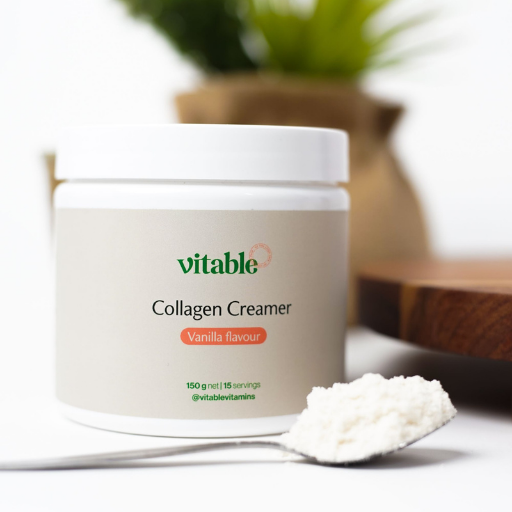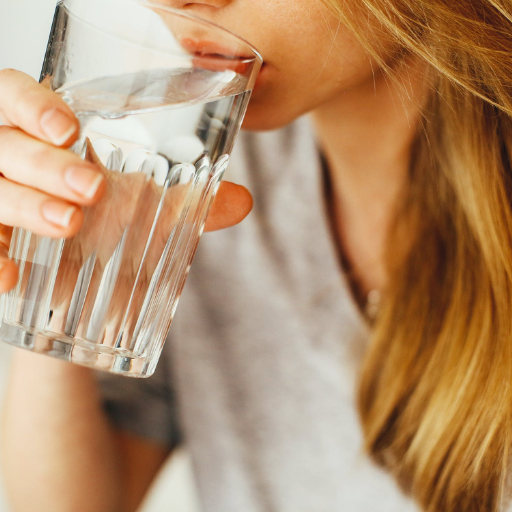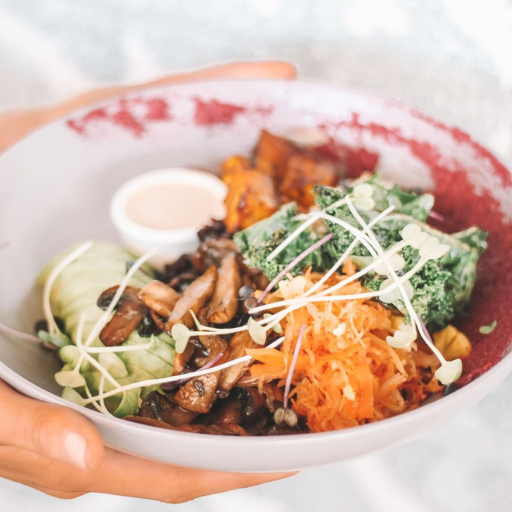Wellness Blog
The content on this blog is for general informational purposes only and is not a substitute for professional medical advice, diagnosis, or treatment. Always consult your healthcare provider before making changes to your health routine or taking new supplements.
Zinc Supplements for Hair Strength
Our hair can play an important part in our lives as it protects the scalp from harmful sun exposure and heat. Some common factors that may cause it to change over time are hormonal changes, overexposure to the sun's ultraviolet (UV) rays, chemical processes (ie. dye), and aging (1).
Learn moreOur new Collagen Creamer: everything you need to know
It's finally here - our first collagen creamer. This powder is scientifically formulated with an abundant and pure source of collagen using delicious vanilla and coconut flavours, ready to add to your favourite drink, smoothie, or sweet treat.As the most abundant protein in our bodies, collagen makes up approximately 80% of our skin and is produced naturally by combining amino acids and essential vitamins.As we grow old, our ability to synthesise and produce collagen declines causing thinner, pigmented and wrinkled skin. Other factors contributing to signs of ageing and a decline in skin quality/elasticity include (1): UV exposure Poor dietary intake Excessive consumption of alcohol or other toxic substances. Hormonal changes Pollution and smoke inhalation Despite collagen being present in some foods, the typical intake isn't enough to combat signs of ageing. Our collagen creamer will support your natural production of protein to ensure optimum vitality (2).Our collagen creamer is simple and fuss-free, designed to support your collagen production, improving skin elasticity, texture and hydration. It can also support healthy hair & nails health.Why marine collagen?Our marine collagen is the highest standard, hydrolysed, bioavailable source of collagen derived from sustainably sourced fish. Ingesting collagen as a powder allows for maximum absorption where it can be effectively broken down into amino acids. This results in the natural stimulation of collagen production, strengthening your skin, hair and nails from the inside out. Here are some of the benefits of marine collagen:1) The use of marine collagen can improve elasticity and hydration of the skin, reduce the appearance of wrinkles and improve thickness (3)(4)(5).2) Studies have shown that daily consumption of marine collagen may help reverse some of the effects of skin damage and improve epidermal thickness.3) Collagen has the potential to reduce both joint pain and deterioration (6).How to use collagen creamer There is a multitude of ways to add our collagen powder to your routine. It's not unheard of for collagen supplements to have a slightly 'fishy' after-taste. However, our delicious coconut and vanilla flavours ensure it is the perfect (and tasty) addition to your diet.Our creamer can be added to warm milk of your choice, chai latte, hot chocolate, tea or coffee. It is also the perfect supplement for smoothies (we love it with banana or berries) or even into overnight oats, bliss balls or your favourite breakfast bowl. How to prevent collagen breakdown There are multiple ways you can ensure you maintain your collagen levels: Reduce your sun exposureWhilst vitamin D intake is important, too much sun can lead to skin damage and cause collagen breakdown. Ensure you are wearing SPF when outside, and avoid outdoor activities between 12-3 pm when the sun is strongest. Eat a diet rich in omega 3 fatty acids and whole foodsThis includes fatty fish, bone broth, animal proteins, dark leafy greens, berries, citrus fruits, nuts and seeds [7]. These foods are rich in vitamins, minerals and antioxidants such as Vitamin C and Zinc which support collagen production and protection.Supplement with Vitable's collagen powderDespite incorporating the above foods into your diet, often it is hard to consume the quantity necessary to combat natural collagen depletion. Produced using the highest-quality ingredients, Vitable collagen creamer is the perfect way to boost your natural production of collagen and maximise absorption that is lacking in your diet. Find out more about other areas that the above supplements can help you with:Zinc | Iron | Astaxanthin | B complex | Vitamin C | Biotin*Always read the label. Follow the directions for use. If symptoms persist, talk to your health professional. Vitamin and/or mineral supplements should not replace a balanced diet. Recipe: Berry Glow Collagen SmoothieIngredients: 1 cup blueberries ½ banana (frozen makes it thicker) 2 tsp nut butter of choice (leave out for allergies!) 1 serving Vitable's Collagen Creamer 1 cup of milk (or water) of choice (almond, coconut, cows, macadamia, oat) ½ cup ice 1 tsp chia seeds 1 tbsp maple syrup/honey/monk fruit/stevia Optional: Frozen cauliflower or zucchini can make it super creamy (and an extra serving of veggies) or add cacao powder for a chocolate twist.Method: Add all ingredients to blender and blitz until smooth. Pour into a big glass and enjoy. Make it into a smoothie bowl: Top with your favourite toppings such as granola, mixed nuts, flaxseeds or fresh fruit. References[1] Lassus A, Jeskanen L, Happonen HP, Santalahti J (1991) Treatment of degenerated skin in females. Dept of Dermatology, University Central Hospital, Helsinki, Finland. Journal International Medical; Research (2): 147 – 52[2] https://pubmed.ncbi.nlm.nih.gov/18416885/ [3] Proksch, E. Segger, D. Degwert, J. Schunck, M. Zague, V. and Oesser (2014) Oral Supplementation of Specific Collagen Peptides Has Beneficial Effects on Human Skin Physiology: A Double Blind, Placebo-Controlled Study. Skin Pharmacol Physiol 2014; 27:47:47 – 55 (DOI 10.1159/000351376,[4] Distante F, Scalise F, Rona C, Bonfigli A, Fluhr J.W, Berardesca E (2002) Oral fish polysaccharides in the treatment of photo aging: Biophysical findings. International Journal of Cosmetic Science. Vol 24 Page 81[5] Matsumoto, H. Ohara, H. Itoh, K. Nakamura, Y. and Takahashi, S. (2006) Clinical effect of fish type I collagen hydrolysate on skin properties. ITE Lett. 7. 386 – 390[6] https://www.scientificamerican.com/article/why-does-skin-wrinkle-wit/[7] https://www.goodhousekeeping.com/health/diet-nutrition/g29486608/collagen-rich-foods/
Learn moreEverything you need to know about gut health
Your gut is the gateway to health. It is a highly complex system that we interact with continuously from eating and drinking to performing bodily functions, every single day.
Learn moreTop 4 nutrients to support a strong immune system this season
Your immune system is your body's defence made up of organs and cells that work together to protect your body against foreign invaders. Here are the top 4 nutrients to help you maintain healthy immune function healthy in preparation for this cold and flu season.
Learn moreVitamin D deficiency: what you need to know
Vitamin D is essential for building strong bones and optimising calcium absorption from the gut. It also has roles in maintaining a healthy immune system, skin and muscle strength. Despite its importance, approximately 31% of Australians are deficient.
Learn more6 essential supplements for a vegetarian diet
Plant-based diets are on the rise. Nearly 2.5 million Australians (12.5% of the population) are vegetarian. Swapping to a plant based diet can be confusing, so we're here to help. Check out our top list of essential supplements that you need to consider if you're planning to go vego!
Learn more7 of the best heart-healthy foods to include in your diet
Heart disease is one of Australia's biggest health problems. It's the single leading cause of death, killing one Australian every 12 minutes. Through healthy eating, exercising and cessation of smoking, these deaths are largely preventable.
Learn moreMagnesium types: Magnesium glycinate vs citrate: what’s the difference?
Are there different types of magnesium? What are they? We answer all your burning questions about magnesium and whether you should be taking them as supplements.
Learn moreThe best mineral and vitamin-rich foods to support healthy skin
Sunny spring and summer days expose skin to harmful ultraviolet (UV) rays, pose the danger of sunburn, and stimulate oil glands to produce more sebum. On the other hand, cooler autumn and chilly winter months bring with them the risk of skin dehydration and chapping (1).We can help ensure that our skin ages along with us and not ahead of us, and stays healthy throughout the year by receiving sufficient nutrients and vitamins. While a balanced diet is a good source of nutrients and vitamins for skin health, taking the right supplements can complete your year-round skin health regimen. An optimum skincare regime is medically advised and is vital to safeguard the health and longevity of the largest organ in the human body.Food for healthy skinHere are some examples of food that contain specific vitamins and minerals that promote skin health.The chemical composition of foods with a balance of proteins, carbohydrates, vitamins, minerals, fat and water are our best choices to guard skin from premature ageing. Here's an array of the varied sources of vitamins essential for great skin health.SeafoodPrawn, lobster, salmon, rainbow trout, and even seaweed salad are among the best food for skin health. They are solid sources of a carotenoid and antioxidant called astaxanthin. Our bodies depend on antioxidants like astaxanthin to combat the ill effects of oxidative stress—a process that contributes to ageing. The effects of ageing are especially visible on the skin as sun damage and manifest as wrinkling, dryness, sagging, and the deepening of facial lines. These conditions can be exacerbated by changing weather conditions (19). Foods containing astaxanthin are best consumed during autumn and winter. During these seasons, temperatures drop and skin health issues become focused on dry and damaged ski, dullness and more extremely, severe skin dehydration. Astaxanthin helps by maintaining skin elasticity and integrity, can be especially helpful for those with maturing skin as advanced age naturally affects the skin's ability to retain adequate moisture. This is also exacerbated during autumn and winter (2).Astaxanthin may support post-spring and summer skin health by helping shield us from photoageing, which is premature ageing of our skin caused by staying out in the sun for long periods without adequate protection (3). UV exposure breaks down elastin, the protein that gives healthy skin its ability to maintain its shape and texture. Astaxanthin can protect elastin, making skin much more resilient (4).Leafy veggiesLeafy greens and veggies are a great way to get vitamin B2 and B9. B2 and B9 are part of the B group of vitamins, or vitamin B-complex. Consuming sufficient B group of vitamins through dietary intake can help maintain and support skin health. This can be useful for those who experience skin itching, windburn, and flaking or chapping when exposed to cold air during the cooler seasons. Those who are especially prone to sunburn and heat rash can also benefit from adding vitamin B complex to their daily supplement regimen (5, 6). You can opt for nuts, legumes and seeds for vitamin B1; protein-packed foods and mushrooms for vitamin B3; meats and organ meats (kidney and liver) for vitamin B5; shellfish, meats, and fruits for vitamin B6; poultry, yeast-heavy foods, and nuts for vitamin B7; and meats, dairy products, and other animal products for vitamin B12 (20).Protect your skin with the intake of these naturally-occurring, brightly colour-coded fruit and veggies in your daily diet (28). Beta carotene rich yellow-oranges like carrots and apricots, antioxidant reds in fresh tomatoes and berries, anti-cancer pinks through salmon and mackerel, a shot of heart health through leafy greens like spinach and broccoli, and protein, fibre and carb-rich browns in nuts and seeds; all make up a smorgasbord of the freshest products, with a bevy of benefits for not only the eyes, palate and our bellies, more so for our skin health.Citrus fruitsAustralia is home to an abundance of fruits and vegetables right from citrus fruits like orange and grapefruit, mandarin and lime, and even lemon and shaddock (pomelo). These fruits contribute to skin health by providing us with vitamin C that our skin needs (21). Vitamin C promotes collagen synthesis, a process which ensures our skin gets enough of this crucial protein that contributes to skin's resilience, elasticity, and smoothness. Skin is more likely to suffer from severe dryness in the autumn without enough collagen, whereas during the spring and summer, collagen is broken down by increased sun exposure (7).Egg yolksEggs, specifically their yolks, are rich in biotin. Biotin facilitates the body's efficient use of amino acids, fatty acids, and glucose. These are important elements in the production of new and healthy skin tissue, and the repair of damaged skin. Biotin also maintains and supports skin health by playing an active role in helping skin through various stressors. Studies have found that you could experience fewer instances of mild to moderate skin irritation, faster wound scabbing and healing as well as scar fading, and reduced likelihood of developing skin infections (8). Individuals with very sensitive facial skin can benefit from biotin as it has been observed to help with visible, and uncomfortable, skin problems affecting areas surrounding the nose, mouth, and eyes (9).Bone brothBone broth is a stock made by boiling bones and connective tissue like cartilage for hours. Due to this long and slow extraction process, it produces a rich source of collagen.Collagen maintains and supports skin health, integrity and structure. For example, getting enough collagen can have visible effects such as decreasing fine lines and wrinkles, improving skin elasticity and integrity, supporting skin hydration and firmness, as well as boosting new collagen production (10, 11).Nuts and beansAnother set of food for maintaining skin health are nuts and beans. They contribute to healthy skin as they contain generous amounts of iron (23).Iron comes to our skin's aid by maintaining and supporting collagen formation. Collagen does not only improve skin in a cosmetic sense, but also makes it much more capable of protecting itself from stress and healing from damage (12). An iron deficiency that strains your body's ability to produce collagen could make skin much more sensitive, which in turn could result in secondary problems like painful cracking from extreme skin dryness, pruritus (intense skin itching), the formation of bumps or scaly patches, and a vulnerability to infections (13). MeatsAccording to Healthdirect, good food for healthy skin also includes meats such as beef (steak), lamb shank, and chicken breast as they are healthy sources of zinc.Our body requires zinc, but doesn't produce it naturally (25). Taking zinc with copper is optimal as they enhance each other's benefits (14, 15).Zinc in particular has been touted by dermatologists as essential to skin health as it maintains and supports skin health and collagen production. With zinc, skin can rely on itself to slough away dead skin cells, and find areas of infection or wounding and work on restoring damaged skin to a healthy state. It also helps reduce inflammatory responses, and keeps skin youthful-looking for longer (16). On the other hand, copper helps shield us from bacteria, fungi, and other microbes that could harm the skin itself or enter through broken skin to cause problems in other organs and bodily processes (17).CranberryCranberries are delicious as a dried snack, as a juice, or even as a jam or preserve. They are an ubiquitous fruit in the Australian diet for the many ways it can be enjoyed.Cranberries support the health of the connective tissue found in the skin. They contain proanthocyanidins that act similarly to collagen (26) and help repair collagen-based tissues.Cranberries have also been found to inhibit oxidative stress, which is basically what occurs when our body's antioxidants are unable to detoxify free radicals. A balanced diet and healthy lifestyle habits are keys to maintaining skin health. To further support skin wellness, consider personalised vitamins or vitamin packs from Vitable Australia. We provide custom vitamin plans as well as vitamin subscriptions to ensure you receive sufficient nutrients. Our custom vitamin packs include vitamin delivery services that lets you stay on top of your health from the comfort of your home. Find out more about other areas that the above supplements can help you with:Zinc | Iron | Astaxanthin | B complex | Vitamin C | Cranberry | Collagen | Biotin*Always read the label. Follow the directions for use. If symptoms persist, talk to your health professional. Vitamin and/or mineral supplements should not replace a balanced diet.References:1. Skincare for every season (2021), https://www.asds.net/skin-experts/skin-care/skin-care-for-every-season . Retrieved August 29, 20212. Astaxanthin: The Key to a New You (2021), https://www.clinicaleducation.org/resources/reviews/astaxanthin-the-key-to-a-new-you/ . Retrieved 29, 20213. Ultraviolet radiation reduces desmosine cross-links in elastin (2017), https://www.ncbi.nlm.nih.gov/pmc/articles/PMC5614723/. Retrieved August 29, 2021 4. Biochemistry of Collagens: Laminins and Elastin Structure, Function and Biomarkers (2016), https://www.sciencedirect.com/topics/medicine-and-dentistry/elastin. Retrieved August 29, 2021 5. B Vitamins: Your Secret to Good Skin Health (2020), https://www.tricitymed.org/2018/08/b-vitamins-secret-good-skin-health/. Retrieved August 29, 2021 6. B vitamins are great allies in immediate skin regeneration (2021), https://neftislaboratorios.com/2021/03/08/b-vitamins-are-great-allies-in-immediate-skin-regeneration/.Retrieved August 29, 2021 7. The Roles of Vitamin C in Skin Health (2017), https://www.ncbi.nlm.nih.gov/pmc/articles/PMC5579659/. Retrieved August 29, 2021 8. Biotin (2021), https://ods.od.nih.gov/factsheets/Biotin-HealthProfessional/. Retrieved August 29, 2021 9. Biotin – Vitamin B7 (2021), https://www.hsph.harvard.edu/nutritionsource/biotin-vitamin-b7/. Retrieved August 29, 2021 10. What are the benefits of collagen? (2021), https://www.reidhealth.org/blog/what-are-the-benefits-of-collagen. Retrieved August 29, 2021 11. Collagen (2021), https://www.hsph.harvard.edu/nutritionsource/collagen/. Retrieved August 29, 2021 12. A healthy diet is the key to getting the iron you need (2015), https://www.health.harvard.edu/blog/healthy-diet-key-getting-iron-need-201502127710. Retrieved August 29, 2021 13. Iron deficiency (2021), https://dermnetnz.org/topics/iron-deficiency/. Retrieved August 29, 2021 14. Mount Sinai. "Zinc". Mount Sinai. Published (n.d.) on https://www.mountsinai.org/health-library/supplement/zinc. Retrieved August 29, 202115. Medsafe. "Interacting elements – zinc-induced copper deficiency". New Zealand Medicines and Medical Devices Safety Authority: Medsafe. Published March 2020 on https://www.medsafe.govt.nz/profs/PUArticles/March2020/Interacting-elements-zinc-induced-copper-deficiency.html. Retrieved August 29, 202116. The effect of zinc on skin (n. d.), https://aestheticmed.co.uk/site/featuresdetails/the-effect-of-zinc-on-skin. Retrieved August 29, 202117. Using Copper to Improve the Well-Being of the Skin (2014), https://www.ncbi.nlm.nih.gov/pmc/articles/PMC4556990/. Retrieved August 29, 202118. To determine the activity and mechanisms of cranberries to attenuate skin photoaging and improve skin health in women (2021), https://clinicaltrials.gov/ct2/show/NCT04183920. Retrieved August 29, 2021 19. Astaxanthin: Sources, Extraction, Stability, Biological Activities and Its Commercial Applications—A Review (2014), https://www.ncbi.nlm.nih.gov/pmc/articles/PMC3917265/. Retrieved August 29, 202120. Vitamin B (2020), https://www.betterhealth.vic.gov.au/health/healthyliving/vitamin-b#vitamin-b-in-food. Retrieved August 29, 202121. Vitamin c (2020), https://www.nhs.uk/conditions/vitamins-and-minerals/vitamin-c/. Retrieved August 29, 202122. Biotin (Vitamin B7) Sources, Health Benefits and Dosage ( 2021 ), https://www.news-medical.net/health/Biotin-(Vitamin-B7)-Sources-Health-Benefits-and-Dosage.aspx . Retrieved September 10, 202123. Iron (n. d.), https://www.nhs.uk/conditions/vitamins-and-minerals/iron/. Retrieved August 29, 202124. Zinc (2021), https://ods.od.nih.gov/factsheets/Zinc-HealthProfessional/. Retrieved August 29, 202125. Copper (2021), https://ods.od.nih.gov/factsheets/Copper-HealthProfessional/. Retrieved August 29, 202126. Collagen-collagen interactions mediated by plant-derived proanthocyanidins: A spectroscopic and atomic force microscopy study (2016), https://pubmed.ncbi.nlm.nih.gov/27208639/, Retrieved, Sept 2, 202127. Foods high in zinc (n.d), https://www.healthdirect.gov.au/foods-high-in-zinc. Retrieved, Sept 22, 2021.28. https://www.netmeds.com/health-library/post/nature-s-colour-code-learn-about-the-health-benefits-of-fruits-veggies-based-on-their-hues. March 2021.
Learn more












